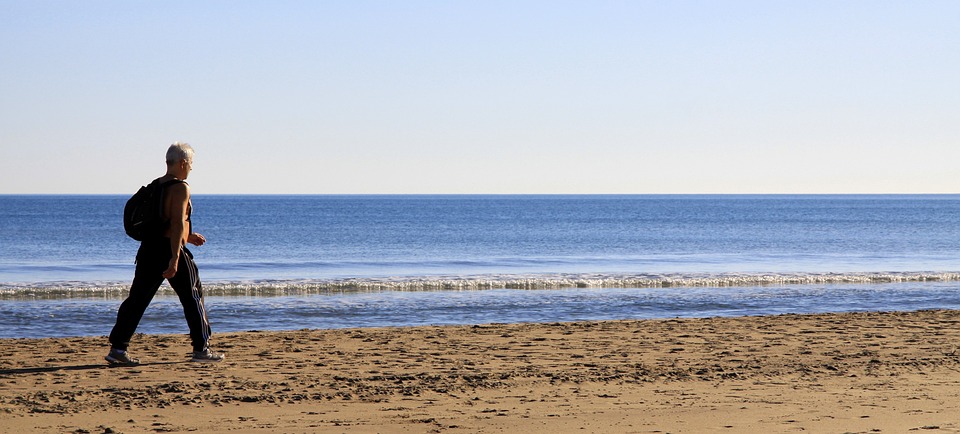The Power of Relaxation: Uncover the Science Behind These Techniques
Relaxation is a state of calmness and tranquility that allows our bodies and minds to recover from the daily stressors of life. It is a powerful tool that can promote physical and mental well-being, improve productivity, and enhance overall quality of life. In this article, we will delve into the science behind relaxation techniques and explore their incredible benefits.
The Science Behind Relaxation
Relaxation techniques aim to activate the body’s natural relaxation response, a state of deep rest that counteracts the effects of stress. When we experience stress, our bodies release stress hormones like cortisol and adrenaline, which can have detrimental effects on our health if not properly managed. By engaging in relaxation techniques, we can reverse the stress response and promote a sense of calmness and balance.
Various relaxation techniques have been scientifically proven to elicit physiological changes in the body. One such technique is deep breathing, which involves taking slow, deep breaths to activate the body’s relaxation response. Deep breathing increases oxygen levels in the bloodstream, slows down heart rate, and lowers blood pressure, leading to a state of relaxation.
Meditation is another powerful relaxation technique that has been extensively studied. Research shows that regular meditation practice can reduce anxiety, depression, and chronic pain. It can also improve attention span, memory, and cognitive abilities. During meditation, the brain enters a state of deep relaxation, characterized by increased alpha and theta brainwave activity, which promotes a sense of calmness and mental clarity.
Progressive muscle relaxation is yet another technique that harnesses the power of relaxation. This technique involves systematically tensing and releasing different muscle groups in the body, promoting physical and mental relaxation. By consciously tensing and then relaxing muscles, we can release physical tension and achieve a state of deep relaxation.
The Benefits of Relaxation
The benefits of relaxation extend beyond just feeling calm and refreshed. Research has shown that regular practice of relaxation techniques can have a profound impact on our physical and mental well-being.
1. Stress Reduction
Relaxation techniques are highly effective in reducing stress levels. When we engage in relaxation, our bodies release endorphins, which are natural “feel-good” chemicals that counteract the effects of stress hormones. By regularly practicing relaxation techniques, we can lower our overall stress levels and improve our ability to cope with daily stressors.
2. Improved Sleep Quality
Relaxation techniques can also greatly improve the quality of our sleep. By promoting relaxation before bedtime, we can create a conducive environment for falling asleep and staying asleep throughout the night. Deep breathing, meditation, and other relaxation techniques can help calm the mind, reduce racing thoughts, and induce a state of deep relaxation that facilitates a restful night’s sleep.
3. Enhanced Immune Function
Chronic stress can weaken the immune system, making us more susceptible to illness and disease. Engaging in relaxation techniques can boost immune function by reducing stress levels and promoting overall well-being. Studies have shown that regular practice of relaxation techniques can increase the activity of natural killer cells, which play a crucial role in fighting off viruses and cancer cells.
4. Improved Mental Health
Relaxation techniques have been found to be highly beneficial for mental health. They can reduce symptoms of anxiety and depression, improve mood, and increase overall feelings of well-being. By activating the body’s relaxation response, relaxation techniques help regulate stress hormones and promote the release of neurotransmitters, such as serotonin and dopamine, which are involved in mood regulation.
Frequently Asked Questions
Q: How often should I practice relaxation techniques?
A: The frequency of relaxation practice depends on individual preferences and needs. Some people find benefit from practicing relaxation techniques daily, while others may find a few times a week to be sufficient. Experiment with different frequencies and listen to your body to determine what works best for you.
Q: Can relaxation techniques be used alongside other medical treatments?
A: Absolutely! Relaxation techniques can complement other medical treatments and therapies. They can be used as a supportive tool to manage symptoms and enhance overall well-being. However, it’s always important to consult with your healthcare provider before incorporating new relaxation techniques into your routine, especially if you have any underlying medical conditions.
Q: Are there any potential side effects of relaxation techniques?
A: Relaxation techniques are generally safe and well-tolerated. However, some individuals may experience temporary lightheadedness or dizziness during deep breathing exercises, especially if they are prone to hyperventilation. If you experience any discomfort or adverse effects, it’s important to discontinue the technique and consult with a healthcare professional.
Q: Can relaxation techniques be beneficial for children?
A: Yes, relaxation techniques can be highly beneficial for children. They can help children manage stress, improve sleep quality, and enhance focus and concentration. However, it’s important to tailor relaxation techniques to suit the child’s age and developmental stage. It may be helpful to seek guidance from a qualified professional experienced in working with children.
Uncover the power of relaxation by incorporating these scientifically proven techniques into your daily routine. Whether it’s deep breathing, meditation, or progressive muscle relaxation, these methods have the potential to transform your physical and mental well-being. Embrace the science behind relaxation and experience the incredible benefits it can bring to your life.
For further information on the power of relaxation and the science behind these techniques, check out this in-depth article on the same topic.






